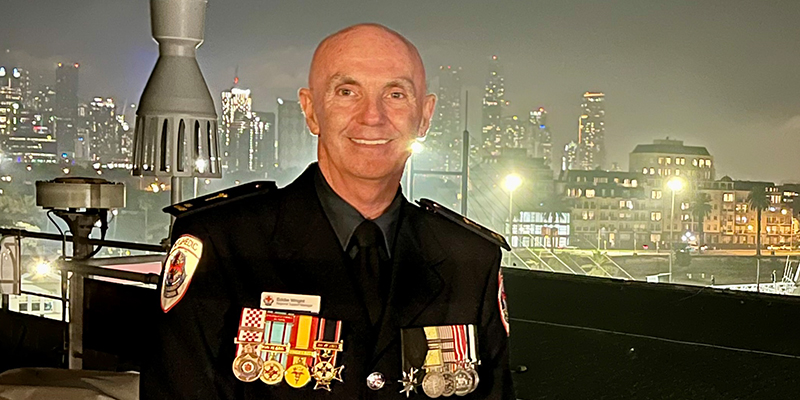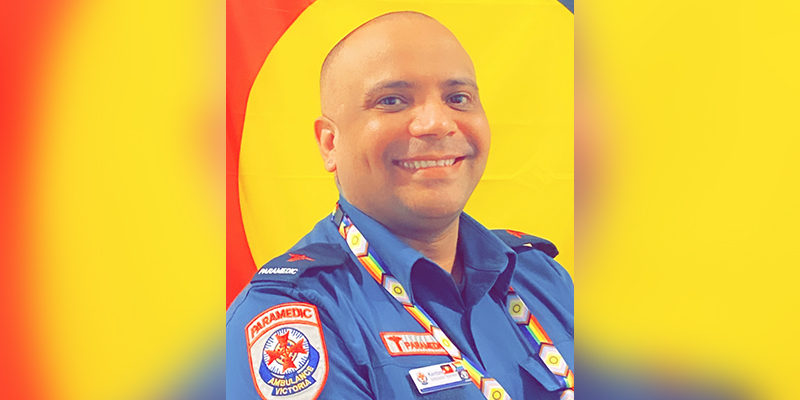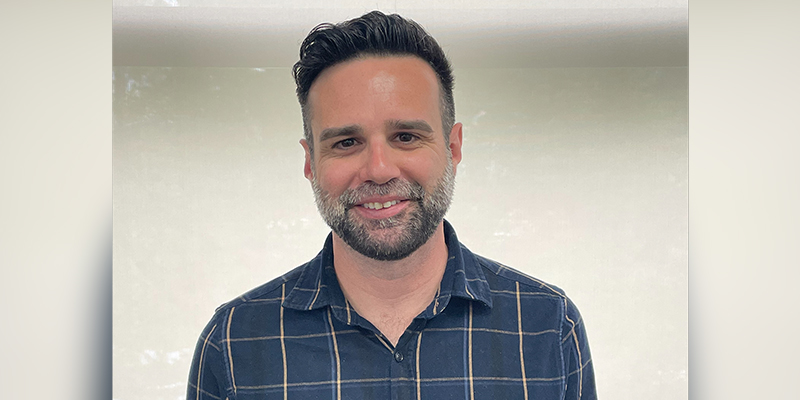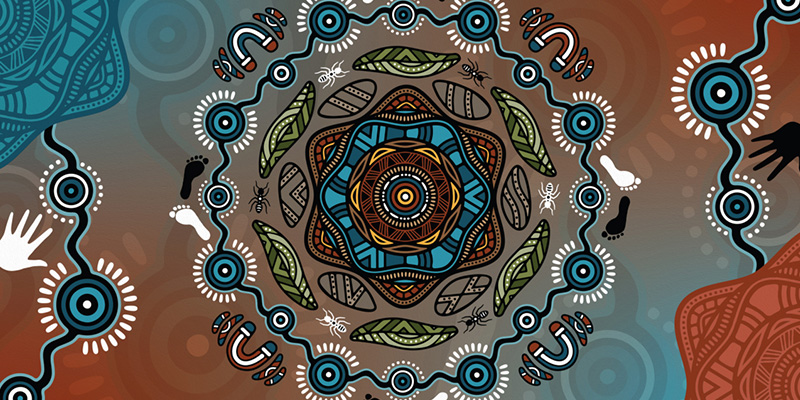To mark the start of National Reconciliation Week, Ambulance Victoria (AV) paramedics and staff share what reconciliation means to them and why it's important we recognise the ongoing commitment to reconciliation and justice for First Nations people.

Gunaikurnai Man and AV Paramedic Eddie Wright.
Gunaikurnai Man and AV Paramedic Eddie Wright
While Paramedic Eddie Wright is proud of his First Nations heritage, he was raised in the late 1960s and 1970s during a time where his family refused to discuss his ancestry.
"I had a feeling growing up that I was Indigenous, but it was something we didn't speak about," he said.
"When I was around six years old, my family went to a farm to meet an Indigenous woman who I came to understand is my great grandmother.
"Back then, my family didn't want to have that discussion."
In 2021 Eddie took a DNA test that confirmed what he had thought for decades - he had First Nations ancestry.
"It's part of my heritage now that I know," Eddie said.
"It's a shame I didn't get the chance to recognise it growing up, but I am proud knowing that I'm a part of the oldest living continuous culture in the world."
Eddie said that it was important that reconciliation be a shared experience by all Australians regardless of their background.
"National Reconciliation Week isn't about 'us' and 'them'. It's about everyone coming together, understanding the conversation, and reflecting on our shared histories and how we all contributed to where we are now and where to go from here."

Ambulance Victoria paramedic and Ngan'gi man Kenton Winsley.
Ngan'gi Man and AV Paramedic Kenton Winsley
Paramedic Kenton Winsley is a proud Ngan'gi man born and raised in the Northern Territory, growing up in Belyuen on the Kenbi Lands.
"I am incredibly proud to be First Nations because of the deep richness of our cultural heritage, the unbreakable bond we share with the land, and the enduring strength of our communities," Kenton said.
"Our stories, languages, traditions, and wisdom have withstood the test of time and adversity, showcasing our resilience and spirit."
Kenton said reconciliation meant embracing a journey of healing, respect, and unity between Aboriginal and Torres Strait Islander Peoples and non-Indigenous Australians.
"Reconciliation is about acknowledging the truths of our shared history, addressing the injustices of the past, and committing to a future where equity and mutual respect prevail," he said.
The theme of National Reconciliation Week 2024 theme is Now More Than Ever, and Kenton said this is a powerful call to action reminding the community the quest for justice and equality for Aboriginal and Torres Strait Islander Peoples and non-Indigenous Australians people is more urgent and essential than ever.
"In these times of continued challenges and opportunities, it is a rallying cry for all Australians to stand together, act with conviction, and ensure that the fight for our rights and recognition never wanes."
"It underscores that reconciliation is a living, breathing movement that requires daily collective energy and dedication."

Ambulance Victoria Director Diversity and Inclusion Joel Pearlman.
AV Acting Director Diversity and Inclusion Joel Pearlman
Joel is the Acting Director of Diversity and Inclusion at Ambulance Victoria and a passionate supporter of reconciliation.
"National Reconciliation Week is a great opportunity for everyone to listen to learn and reflect on the experiences of Aboriginal and Torres Strait Islander peoples and communities" Joel said.
"It's a chance to better understand the role every one of us can play in reconciliation."
He said respect was an essential part of demonstrating commitment to reconciliation.
"An example of showing respect to Aboriginal and Torres Strait Islander history and culture is to do an Acknowledgement of Country at formal meetings or events," he said.
Joel encouraged everyone to support National Reconciliation Week and do what they can to support reconciliation.
"Reconciliation can only be achieved if non-Indigenous Australians are actively engaged and committed to working with Aboriginal and Torres Strait Islander peoples and communities."

Title 'Booloot ba manda' ('Above and beyond' – Gunnai language)- Artwork in Ambulance Victoria's Reconciliation Action Plan.
National Reconciliation Week runs from Monday 27 May to Monday 3 June 2024 and is a time for all Australians to learn about our shared histories, cultures, and achievements, and to explore how each of us can contribute to achieving reconciliation in Australia.






